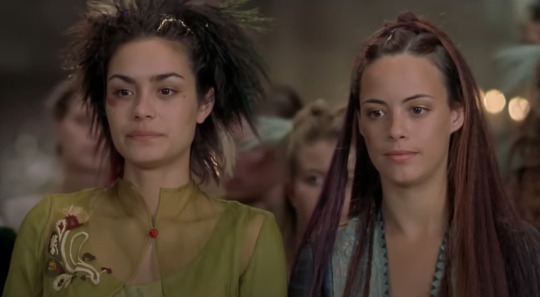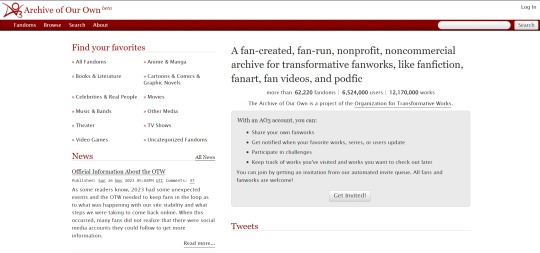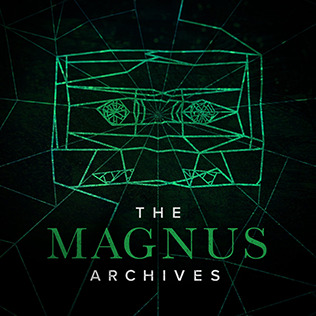Welcome! Want to learn about archives? This is the blog for you! (Phase 1 complete Dec 2023)
Don't wanna be here? Send us removal request.
Text
Hello!
New to this blog? Go ahead and start at my ABOUT page in the sidebar on my blog. Thank you and enjoy!
0 notes
Text
Media Archives
youtube
Doctor Who is the longest running sci-fi television series in history, with the first episodes airing on the BBC in 1963. However, if you want to do a complete rewatch spanning sixty years of television (minus that time in the 90s when the show was cancelled), you won’t actually be able to watch them all. That’s because the BBC, like many production studios, was not in the habit of archiving their analog media. Film and videocassette tapes were routinely scrapped or taped over during the first fifteen-ish years of Doctor Who’s history, leaving much of the First and Second Doctors’ stories lost. However, episodes have slowly been found by the community, and audio recordings survive of all the missing episodes. Using these audios, some of the early episodes have been animated and officially released, like the video above.
Media archives are getting broader and broader every single day. Media is an interesting case where the document (again, not necessarily literal paper) is evidence of both the medium and the message. For example, a movie is a record of the director’s style, the actors at a specific point in their lives, and every single creative and technical decision made during the production (lighting, shots, sound effects, etc). Movies also tend to reflect the time period they were made, even in period pieces; despite taking place in a fantasy medieval setting, I don’t think I need to tell you what year the movie A Knight’s Tale came out.

(It was 2001.)
I also don’t need to tell Tumblr how important media is for constructing our identities, our histories, even important as solely entertainment (though little is divorced from all other context). Archiving this media is not only preserving art with often hundreds of hands in the pot, but also preserving human stories in a broad range of mediums. There are unique challenges with preserving analog media suspect to deterioration (did you know nitrate film is extremely flammable?) that require specialized training. It is so important that this knowledge is kept up as we move further and further into the digital world.
Even if digital files can’t decay and studios aren't throwing out literal film reels, streaming still faces similar issues of archive erasure. The rise of streaming culture means many consumers now only hold access to media, as opposed to actually owning materials. For example, if Spotify went completely dark and shut down tomorrow, do you own analog copies of your favorite albums? What about shows like Netflix's Stranger Things or Disney+'s The Mandalorian that only exist on streaming platforms, without DVD or Blu-Ray releases? Several studios have been criticized lately for quietly removing streaming original series and movies from their platforms, often rendering this content lost media. At this point, should we consider pirates freelance digital archivists? Maybe? Let the record state I didn't affirm or reject this concept. Just throwing the idea out there. Nothing to see here, FBI.

1 note
·
View note
Text
Corporate Archives
In season one episode five of HBO’s drama Succession, Tom Wambsgans sends Cousin Greg to go destroy documents related to a secret Waystar-RoyCo company scandal that he's inherited. The scene is played comedic, as leaving Thanksgiving to go execute Tom’s immoral scheme is yet another trial Greg must endure to prove himself within the Roy family and company, but later in the show this action snowballs out of control all the way to U.S. Senate hearings. Mass destruction of archival records to cover up an international scandal is… not great! It is, however, a good example of large scale corporate archives, as Greg must identify himself and sign the documents out, leaving a paper trail that inevitably catches up to him and Tom. As an employee of the company, he is able to access these archives, unlike a member of the general public.
Corporate archives can contain the history of corporations, information about the employees and board members, and maybe even history relevant to other nations (think about matters like overseas sourcing for materials for manufacturing). The wheel of capitalism is, unfortunately, ever turning, and capitalism is deeply entrenched in the history the U.S. and other countries. Many corporate archives are not open access and the general non-stakeholder public often only sees what the corporations have elected to keep and share.
Bureaucratically, archives are imperative to the corporation itself for constructing its own narrative and legacy, along with being able to examine past business decisions. They can even be used for publicity; the Walt Disney Archives frequently tour museums with showy items from their collection like film costumes and vehicles and memorabilia from their theme parks. These contribute to a positive association of the company in the eye of the public.

Why think about low cast member wages when you can look at the first ever Disneyland ticket issued instead?

I'm not pretending I'm above reproach, by the way, since that photo is from my own visit to an exhibit put on by the Walt Disney Archives and I deeply enjoyed the experience. No matter how you feel about any given corporation, however, we should all care about open record-keeping for the sake of transparency and accountability relating to how millions of dollars get moved around--and at whose expense.
1 note
·
View note
Text
Digital Archives

There's a good chance if you've been an internet user in fandom spaces for long enough, this website is the first thing that pops into your mind every time I use the word "archive." For anyone who doesn't know, Archive of Our Own (AO3) is a non-profit project of the Organization of Transformative Works (OTW), an organization dedicated to the importance and the preservation of fan-made content and culture. AO3 account holders can upload both original and derivative works of fiction, though the latter is most common, and readers with or without an account can browse the works for free. The site features an extensive tagging system so that readers can filter works by the exact content they do (or don't) want to see.
Basically, it's fanfiction. Lots and lots and lots of fanfiction. But it's also a pretty robust digital archive, and a community archive. All of the content is entirely user-generated and they upload it of their own free will. Readers can read, rate, and review the works even without an account of their own, making it entirely open access. The works also stay up unless deleted by the original author.
It's difficult to discuss digital archives as their own, independent category when many, many archives that were once only physical are now becoming more and more digital. Still other archives originate as solely digital works. Pretty much every type of archive discussed on this blog has digital components. While they're not all open-access, digital collections are generally more accessible. Content can be shared to anyone anywhere with an Internet connection near-instantly. Digitizing physical archives can also help preserve fragile materials, and digital copies can be studied by many people at once compared to one original physical copy.
Are open-access digital archives always appropriate? Absolutely not. After all, once something is on the Internet, it's there forever. Keep in mind that many archives and museums are colonial, imperialistic institutions. Who is at the top making decisions on what should be digitized, and what is appropriate to spread online? The Internet is a relatively new blip in human history. Many photographs of humans (living or deceased), oral histories, descriptions of cultural practices, personal diaries, and more were all collected or donated before the concept of a nonstop open access digital highway was even conceived. Where do issues of consent blur? What if the materials are associated with a cultural group other than your own that may have specific customs related to the spread of certain images or practices? Furthermore, if a box of personal letters is held in a physical archive, they may be all grouped together to preserve their context as related to one another. In a digital archive, these items could be individually scanned and recalled as separate objects. How do digital archives preserve context?
Even in the relatively low-stakes case of AO3, let's say you upload a fanfiction, but a year later decide you don't want your work online and delete it off the site. It will no longer appear in the archive, but how do you know someone didn't copy down your entire fanfic and upload it elsewhere? Or save it onto their computer?
In a nutshell: digital archives have the potential to reach far greater audiences than solely physical archives, but the intersection of digital archives and open digital access is a complex issue with benefits and drawbacks alike, and must be navigated with care.
0 notes
Text
Individual Archives
youtube
The 2015 musical Hamilton gained massive popularity for the catchy rap songs and the premise of a diverse cast representative of today’s America portraying the giants of America’s past. The musical hinges on archives in both the story and on a metatextual level. The musical’s creator, Lin Manuel Miranda, was inspired by the 2004 biography of American founding father Alexander Hamilton written by Ron Chernow. Alexander Hamilton left a written legacy of an immense amount of letters and essays, which served as a major source for the book and musical both. As the musical repeatedly enforces, the man wrote a LOT. Thanks to his extensive writings, two hundred years later Hamilton was able to be the subject of a popular rap musical. The musical plays with this idea, often acknowledging gaps in the historical record due to missing or destroyed documents. In the above clip, George Washington advises Hamilton that he “has no control who lives, who dies, who tells your story,” a motif that repeats itself throughout the musical. But thanks to Hamilton’s extensive personal archive, his story is still being told, though of course by now the man himself has relinquished control. Here’s another topical lyric from the climactic duel at the end of the show:
“If I throw away my shot, is this how you’ll remember me? What if this bullet is my legacy? Legacy. What is a legacy? It’s planting seeds in a garden you never get to see I wrote some notes at the beginning of a song someone will sing for me.”
Consider all the ways you might be keeping an individual archive and contributing to your legacy. Do you actually keep a physical diary? A digital diary? Any letters you've sent--snail mail and electronic both? All your social media posts? Have you ever been mentioned in a newspaper article? A blog article? Have you ever written for either? What about photographs you've appeared in? Have the jobs you've held maintained records of your participation? Let's say you're the subject of research two hundred years in the future and all that's left of your legacy are these documents. How will your life story be interpreted or told?
How much your individual archive matters is really up to you. With the rapid explosion of the digital world, however, there are interesting implications of how well your individual archive is maintained. There are countless examples of someone in the public eye getting raked through the coals over old tweets spouting ignorant and/or hateful rhetoric. Our records can be scrutinized in a more public manner than ever before. Are you alright with this? Do you maintain your personal archive with this in mind? There is no correct answer.
Does the archive always contain the complete narrative? Women in patriarchal societies are often brushed over, and name changes after marriage can obscure familial ties. Someone’s sexuality or gender identity may also be inaccurately reflected in various documents, or could change over time. Ultimately, you have no control who sings your song and how after you’re gone, but you can be active in creating lasting documents in your own words to self-define your identity.
0 notes
Text
Academic Archives

After the first season of this popular horror fiction podcast things go a little off the rails, but the premise of the first season is fairly simple: Jonathan Sims, head archivist for the archives at the Magnus Institute, is making audio recordings of a collection of supernatural testimonies collected by researchers of the strange and unusual. He claims the archives are rather ill maintained by researchers too caught up in academia and attempts to digitize the written testimonies by recording himself reading them all.
Academic archives can be administrative, special collections, and/or results of research like at the fictional Magnus Institute. Once you turn 18, in the U.S. your university cannot release any records about you to anyone, not even your relatives, without your consent under the Family Educational Rights and Privacy Act (FERPA). When you think about it, your university typically has a lot of information about you. Your financial status for your financial aid and scholarship applications, your citizenship status including your state residency, your parents' educational backgrounds, every grade you've ever earned, and if you've ever used campus counseling resources they could even have sensitive mental health issues on file. These are just a few examples. Some jobs or internships may require a transcript, but no parent, employer, or landlord can contact your school and demand to see your grades or anything else about you thanks to these privacy acts. Jonathan Sims' audio transcripts being aired online as a podcast might be breaking some privacy acts, but oh well. The Magnus Institute has bigger issues going on. The Magnus Archives (the podcast itself, not the fictional institute) has an archive too containing transcripts of all the episodes here.
Many academic libraries also hold special collections, which are often technically archives even if they're under a library heading. Sometimes, archives struggling with funding or location can benefit from partnerships with academic institutions. One such example is the ONE Archives, the largest and oldest LGBTQ+ archive in the U.S., which was absorbed into the University of Southern California library in 2010 following struggles with funding. Becoming part of USC (a private university) provided a stable budget as well as access to appropriate facilities to preserve analog materials as well as digitize items from the collection. However, universities in America are massive bureaucratic institutions often steeped in whiteness and imperialism. It is not guaranteed that being swept into an institution like this (especially when public universities are subject to state governmental funding allocation) is universally beneficial to all archives.
5 notes
·
View notes
Text
Government Archives
youtube
If you haven't seen the wild ride that is the 2004 adventure movie National Treasure, Nicholas Cage follows a treasure map on the back of the Declaration of Independence and terribly mishandles irreplaceable archive materials. Like he rolls the Declaration up and sticks it in a bag during a chase scene?? I'm getting annoyed all over again just remembering. Let's zoom in on that. Why exactly do I have such a strong reaction? I am (unfortunately) American, which means practically since birth I have had the importance of documents like the Declaration of Independence and the U.S. Constitution repeatedly impressed upon me by educators and fictional media. Documents like these help construct the American identity. That's what government documents typically do, across all nations.
Every country has different policies, standards, and levels of access; I can't make blanket statements about all government archives. Some are open to the public, digitally or in person (or both), while others aren't. Regardless, my point still stands that government archives are more than just the history of a nation, they are integral to national identity formation.
Government archives aren't only individual famous items. Think of the U.S. Census and how it can determine funding allocations. Also think of documents like (if you're American) your social security number, your driver's license, or your birth certificate. All of these documents construct and legitimize your identity in the bureaucratic eyes of the society you live in. You need 'proofs' like these whenever you try to rent an apartment, apply to school, get married, take an international flight, and more. What barriers are faced by those who are undocumented? Or refugees? Many barriers come down to lack of paperwork. If you yourself aren't undocumented or a refugee, imagine what would happen if your government documents weren't well-kept and were all destroyed or lost. You would still exist, obviously, but the paper trail of evidence of your existence is crucial in many societies. Government archives are integral to constructing both individual and collective identities within the borders of a nation.
#government archives#government archives intro#my post#archives#archival studies#information science#Youtube
0 notes